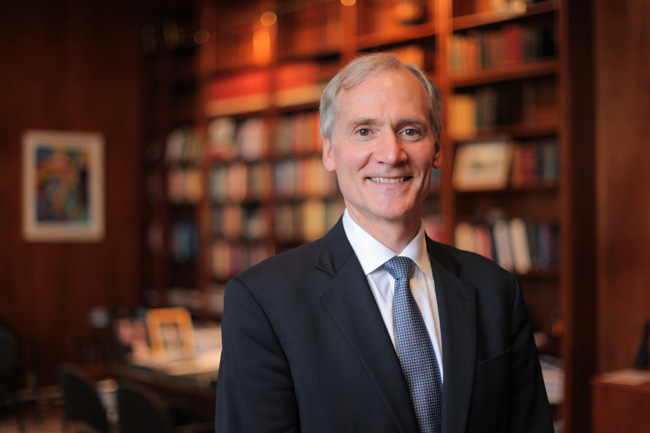
By Doug Sweet
McGill graduate Marc Tessier-Lavigne (BSc’80) was named President of Stanford University on Thursday.
The renowned neuroscientist and entrepreneur is currently President of Rockefeller University, a private university offering graduate and post-graduate education in New York City. He will step down as Rockefeller’s President on Sept. 1, 2016.
Tessier-Lavigne, who studied Physics at McGill and went on to study at Oxford as a Rh0des Scholar, will become Stanford’s 11th President, an appointment regarded in the American business press as likely to continue the school’s close connections with the technology industry in nearby Silicon Valley.
“All of us here at McGill are delighted for Dr. Tessier-Lavigne,” said Principal and Vice-Chancellor Suzanne Fortier. “Stanford is a great university and he is a wonderful choice to lead such an important institution.”
Born in 1960 in Trenton, Ont., Tessier-Lavigne had once served on Stanford’s faculty prior becoming Rockefeller’s President in 2011. Described by Rockefeller University as “a world leader in the study of brain development,” he had served on faculties of the University of California, San Francisco, and Stanford before becoming executive vice-president and chief scientific officer of the biotechnology firm Genentech.
Announcing his appointment in a video interview with Stanford Trustee Ruth Porat, who is chief financial officer of Google’s parent company, Alphabet, Tessier-Lavigne made reference to his Canadian roots: “Because of my background, you might say I’m a bit proper and perhaps formal at times. They say the way you can spot a Canadian on a crowded street is to look for the person who is saying ‘please’ and ‘thank you’ to the ATM machine. I’m that person.”
The Board of Trustees said the appointment was supported unanimously.
An engaging speaker, Tessier-Lavigne delivered a vivid Beatty Memorial Lecture at McGill in October, 2009, describing the various processes of how the brain grows and develops and where the roadblocks are for researchers trying to deal with brain and spinal cord injuries or illnesses.
Following the presentation of an honorary degree by McGill at the 2011 Spring Convocation, Tessier-Lavigne had this to say in an interview with the McGill News alumni magazine (which noted that he had begun as a photographer with the McGill Daily before serving as the student newspaper’s Science Editor): “We put together special editions on many of the topical issues of the day – including test-tube babies, genetic engineering and alternative energy sources – some of which are just as topical today. It was definitely one of the highlights of my McGill experience.”
